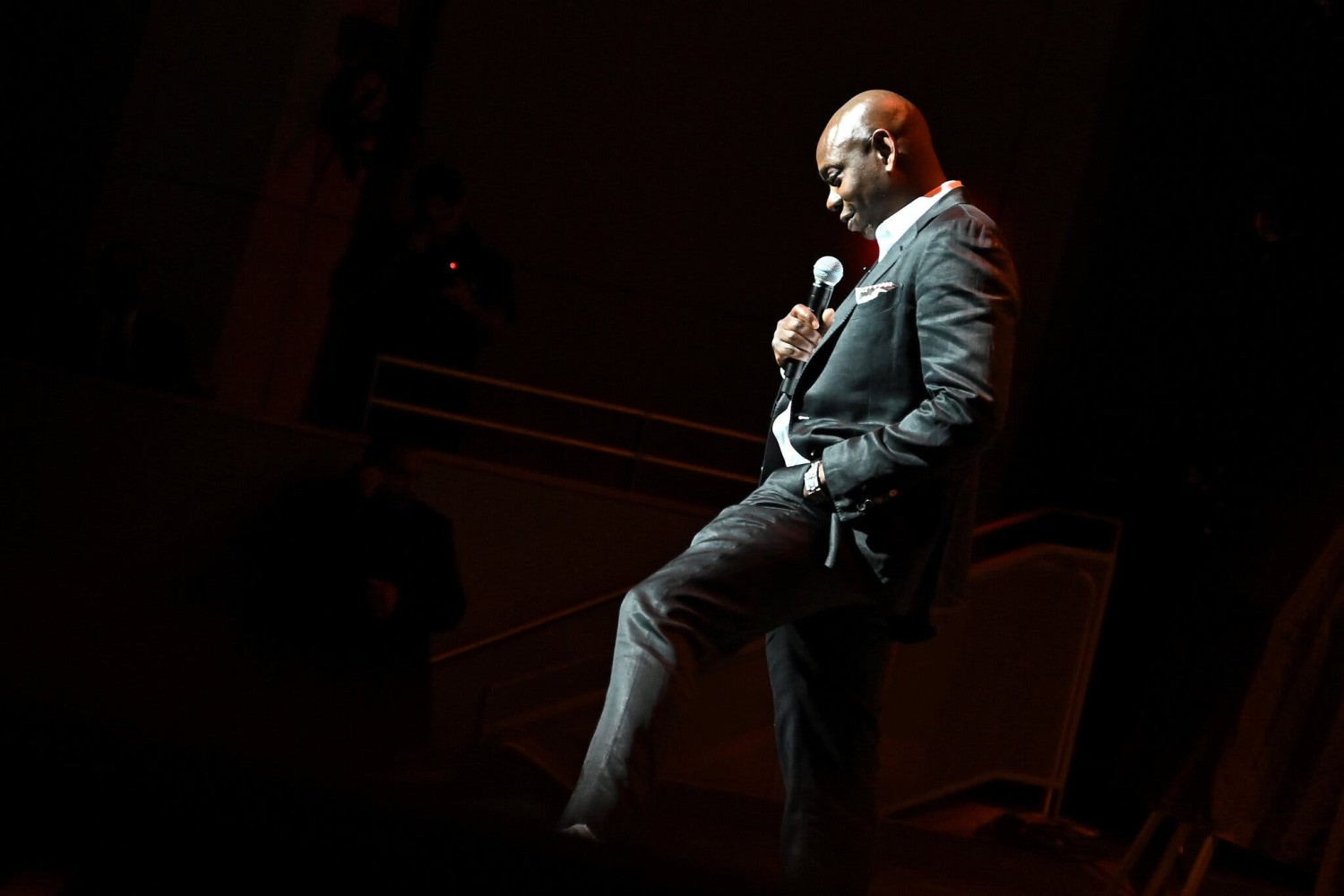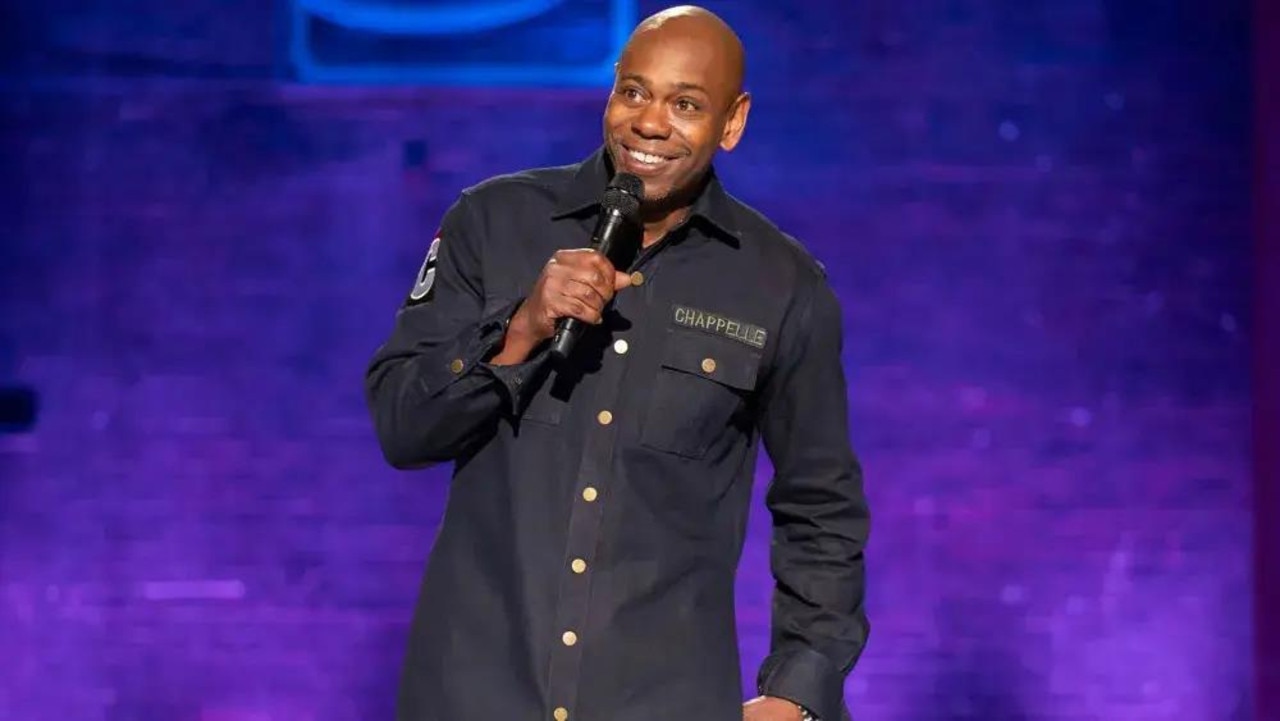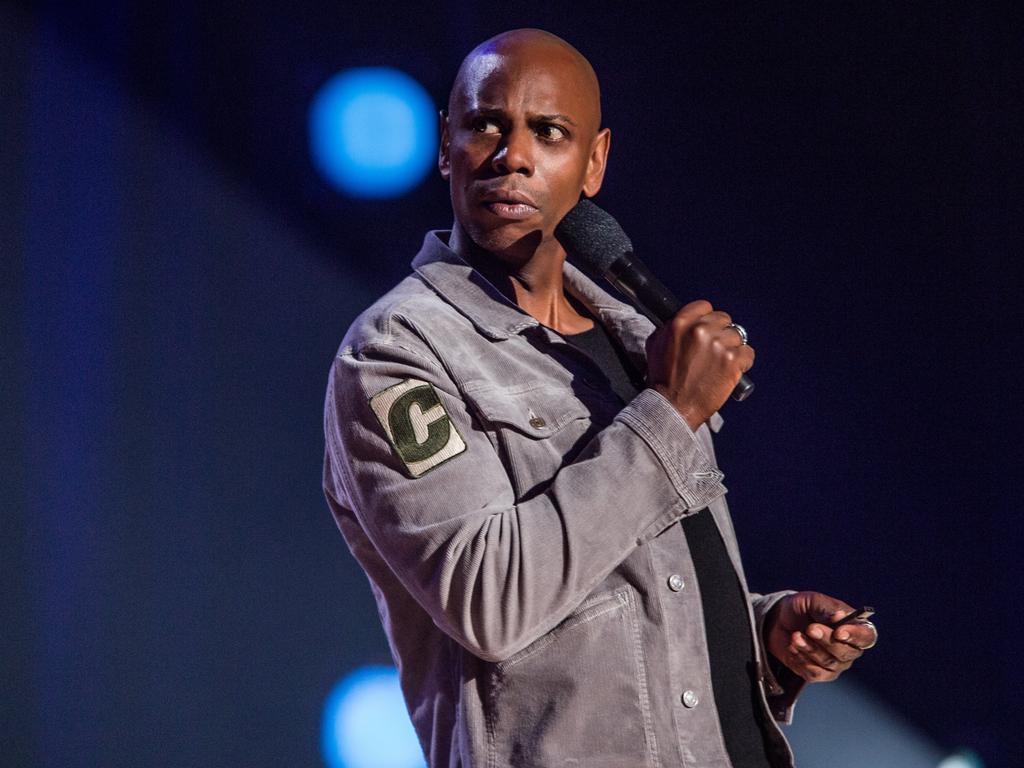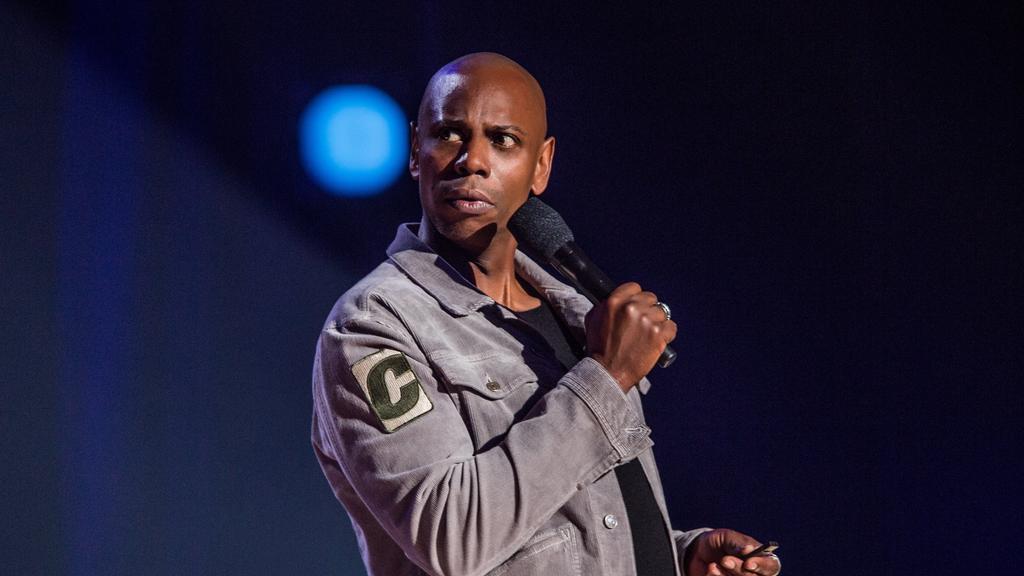This article is more than
1 year oldDave Chappelle and the Perils of Button-Pushing Comedy

Halfway through a sold-out show at the PNC Arena in Raleigh, N.C., on Wednesday, Dave Chappelle stopped to ask the audience about screaming coming from the balcony. “I’m scared it might be the Jews coming for me,” he said, a mischievous tone in his gravelly voice.
This was a reference to a previous show, in Boston, where Chappelle’s criticism of Israeli policies reportedly led to cheers and pushback from the crowd, hundreds of walkouts and one patron posting online that she never felt more “unsafe.” Press descriptions of the event were often vague. The reports of cheers for Hamas didn’t specify if they were coming from one person or a large group. But what seems clear from the reports is that along with defending Harvard students who had signed a letter saying Israel was “entirely responsible” for the violence, Chappelle had denounced the Oct. 7 massacre of Israelis and got sidetracked when someone in the crowd told him to be quiet.
Chappelle’s follow-up show on Wednesday was as much the work of a diplomat as a provocateur, telling the audience to pray for both Israelis and Palestinians and calling the situation for both a nightmare. At one point, he addressed American Jews, saying, “Whatever they can do to take the violence or the danger out of a situation, they should do it.” Then he added, “I’m not about antisemitism, but I’m allowed to disagree with whoever I want to.”
Chappelle, wearing a sleeveless flannel shirt that hung down to his thighs, never figured out what the commotion at the top of the arena was about, but he said he had heard someone say there was a medical issue. Chain-smoking, Chappelle made a few jokes, then added: “You know what it will say in the paper tomorrow: Dave Chappelle makes fun of man as he dies.”
It’s an understandable complaint. Of course, Chappelle seeks out contentious subjects — his lawyerly explanation of the antisemitism of Kanye West on “Saturday Night Live” last year does not help his cause in this current controversy — and no one exaggerates their own victimhood more. He’s still saying, “Any minute they’re going to cancel me” despite the fact that he’s performing for huge crowds and has another Netflix special on the way. But the media attention that Chappelle’s comedy gets is obsessive, polarized and often tediously literal.
It brings to mind one of the most memorable bits of this century, his 2004 joke about Ja Rule being asked to weigh in on Sept. 11. Mocking how our media ask celebrities to be sober authorities making sense of tragic events, Chappelle said, “I want some answers that Ja Rule might not have right now.”
This joke has aged tremendously well. Social media has only amplified the opinions of the Ja Rules of the world. The algorithms that run our feeds are making sure you have Justin Bieber and Gigi Hadid to explain the Israeli-Palestinian conflict. Now every corporation and middle school seems to have its own foreign policy. Comedians have been perhaps the most outspoken of artists, with Sarah Silverman and Amy Schumer consistently commenting on Israel and antisemitism on social media, earning praise and condemnation. The comic Bassem Youssef went viral for his appearance on Piers Morgan’s show. Obviously, in a democratic society, it’s important for people to feel free to speak out on matters of gravity, and an emotional response on this issue is not only understandable but necessary. But it’s also reasonable to think that you should want some answers that Dave Chappelle might not have right now.
Chappelle is a tricky case, because since his Ja Rule joke, he has embraced the sober truth-teller role, telling magnetic stories that sometimes end in lessons, not punchlines. His take on Israel has been mostly sober, but other comics are incorporating the issue into their work. Matt Ruby put 10 minutes of his jokes from a club set online, defending himself by saying, “This is how Jews handle crisis.” The German stand-up Shahak Shapira released a 25-minute special, “Baklavas From Gaza.” Both sounded like rough drafts, but they seem motivated less by a blunt interest in changing hearts and minds than in comforting them.
The seeming hopelessness of the conflict in the Middle East has always drawn comics looking to push buttons. In one of the most high-risk “Saturday Night Live” monologues ever, Louis C.K. likened Israelis and Palestinians to his daughters fighting, with him as America trying to mediate. Since he had sandwiched this metaphor between a joke about his “mild racism” and another about trying to understand pedophilia, he managed the feat of making the subject seem safe.
In recent years, several sharp Muslim comics have made funny comedy on television from the Palestinian perspective. In “Mo,” set in Texas, the Palestinian American comic Mo Amer, who plays a likable fool, gives his pitcher nephew a pep talk on the mound of a Little League game, telling the boy that he’s a Palestinian so “if there’s one thing you can do is throw things accurately.” Then, as another adult tries to shuttle him off the field, he advises the boy to imagine a tank coming at him.
This show was created with another comic, Ramy Youssef, whose own superb, self-named Hulu series, “Ramy,” recorded an episode in Israel portraying daily life in the occupied territories of the West Bank, including the tedium of waiting at a checkpoint to cross over. Playing a jerky American bull in a China shop, Youssef tries to relate to a Palestinian love interest by saying he gets it, comparing the experience to traffic at the Lincoln Tunnel. Both these shows humanize the Palestinian experience in ways that feel new.
No one has been funnier on this least funny of subjects than Larry David and an episode of his “Curb Your Enthusiasm” about an incredible Palestinian chicken restaurant that causes controversy by moving next door to a Jewish deli. It’s invariably high on lists of the greatest installments of the series. It ended with David walking between competing protest groups: one from the chicken restaurant led by his Palestinian girlfriend (dirty talk during sex includes her calling him an occupier and him quoting Theodor Herzl) and another made up of many of his Jewish friends waving signs in front of a deli.
The anguished look on David’s face, eyes bulging, face contorting in confusion, has become a popular meme. It’s used so often that people don’t even realize what it refers to. My sense from Chappelle’s show is that he could relate.
While Chappelle still jokes about transgender people, which was the focus of his last special, his new hour, due in December, throws fewer bombs than his last one. It’s a bit humbler and even has a silly side along with some moony philosophizing about the Will Smith slap, with him calling Smith and Chris Rock “fellow dreamers I met along the way.”
In Raleigh, the one time he told the crowd he would do a “dangerous joke,” it turned out to be something like a parody of one: “Two Jews walk into a bar. I’d say the punchline, but there might be a transgender person here.” He smiled as if he knew how corny this sounded.
When a woman in the audience yelled out, “Free Palestine,” he told her he heard her but added: “Don’t start that up or there will be a news cycle for another week.”
Jason Zinoman is a critic at large for The Times. As the paper’s first comedy critic, he has written the On Comedy column since 2011. More about Jason Zinoman
Keywords
Newer articles
<p>Chinese officials say they "firmly oppose" the platform being divested.</p>
Ukraine ‘will have a chance at victory’ with new US aid, Zelenskyy says
Congress passes bill that could ban TikTok after years of false starts
Ukraine war: Kyiv uses longer-range US missiles for first time
How soon could US ban TikTok after Congress approved bill?
TikTok faces US ban as bill set to be signed by Biden
‘LOSING CREDIBILITY’: Judge explodes at Trump lawyers as case heats up
Claim rapper ‘made staff watch her have sex’
KANYE WEST PLANS TO LAUNCH 'YEEZY PORN' ... Could Be Coming Soon!!!
Trump lawyer tells SCOTUS that president could have immunity after ordering military to assassinate a political rival




